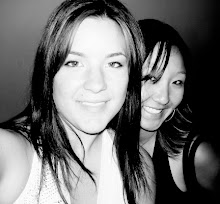Notes: process of collecting thoughts and ideas:
Finding a positive definition of Anthropological Research:
-Question of the other [in the present]
deals with the other simultaneously in several senses. Unique to other fields it deals with all forms of the other: exotic, private, ethnic, ect.
-Absolute individuality is unthinkable
-Question: What would you call essential or private otherness?
"The need for essential, private, otherness is related to the need for individuality. It makes it impossible to discern between collective identity and individual identity" (??) PG 16
-What is Concrete in Anthropology?
Something is to be seen in terms of orders of magnitude from which all individual variables have been eliminated. Mauss restricts and mutilates the idea of individuality. The individual is merely an expression of the group. The totality can only be expressed from a certain angle.
[does this mean, perhaps, the individual is not as simple as the group/totality? If the totality is only an aspect of the 'individual' does that not contradict Mauss' argument for the idea of individuality being impossible? Or is it that because all individuals fall within the totality of the group, despite their differences, their 'individuality' is lacking value?]
The Changing World
-The contemporary world with its accelerated transformations is attracting anthropological scrutiny. These new conditions are bringing a renewed methodical reflection of otherness.
Form of Excess #1: Time
-Our perception of time and how we use/dispose of it has changed.
"Time is no longer a principle of intelligibility"
-Principles of history have changed. Problems with Classic History: Method (anecdotal, not reliable), Object, Question of Usefulness.
-Now it is not for these technical reasons that we have problems with history, but for more fundamental reasons. Because of the acceleration of time it is difficult to make time into a principle of intelligibility, let alone a principle of identity. Now contemporaries are showing us what we are by showing us what we are no longer. We are seeking to find what is different about us now, hoping to find within the spectacle of this difference, the sudden flash of an unfindable identity.
"Deciphering of what we are in the light of what we are no longer" - Pierre Nora (pg21)
-An acceleration of history:
History: a series of events recognized as events by a large number of people.
We have encountered an over-investment of meaning. We have a daily need to give things meaning, need to give meaning to the present.
-The essential quality of the super-modern is excess
-It is our need to understand the whole of the present that makes it so difficult for us to give meaning to the recent past. (pg25)
Form of Excess #2: Changes in Space
-Rapid transport.
-From your home you can see instant or simultaneous events occurring on the other side of the world (even if you presuppose that it is a manipulated selection of tainted viewing).
-We can recognize all parts of the world despite never experiencing it.
-We live in a universe that is homogenous in its diversity
-Spacial Overabundance : we are essentially a universe of recognition, rather than a universe of knowledge. The ideal would be to create "signifying spaces" in the world. Societies identify with cultures conceived as complete wholes. We desire a universe of meaning. (Pg 27)
- Territories in soil still exist but do not ACT as defining territories in reality. Physical space is penetrated by the technology of the contemporary.
Non-Places: are in opposition of places (location in time and place), in opposition to Mauss, and in opposition of tradition. Unprecedented.
As we create a world where the terrestrial world can be thought of in terms of unity, now we want particularism, a mother country, a place away from the clamor. "A land of Roots"
[we are STILL MORTAL, we still carry a need to DWELL, need for personal identity, a connection with ones environment, peace, cultivation, ect.]
Shifting of spacial parameters = spacial overabundance.
Changes of scale, changes of parameter, we are now poised to undertake the study of new civilizations and new cultures.
We do not understand our contemporary world because we have not learned how to look at it.
"The world of supermodernity does not exactly match the one in which we believe we live, or we live in a world that we have not learned to look at. We have to relearn to think about space.
Form of Excess #3: Ego
-In Western Societies the individual wants to be a "world in himself". He intends to interpret the information delivered to him by himself and for himself. Even in religion [ex: Catholics prefer to practice in "their own fashion"].
-Never before have individual histories been explicitly affected by collective history, but never before, either, have the reference points of collective identification been so UNSTABLE.
"The individual production of meaning is thus more necessary than ever" Pg30
-Political Language: hinged on a theme of individual freedoms
-Character of Production: talks of body, the senses, and freshness of living
-"It is the person we consider healthy in mind who is alienated, since he agrees to exist in a world defined by relations with others"
:Anthropological Place Still to Come:
